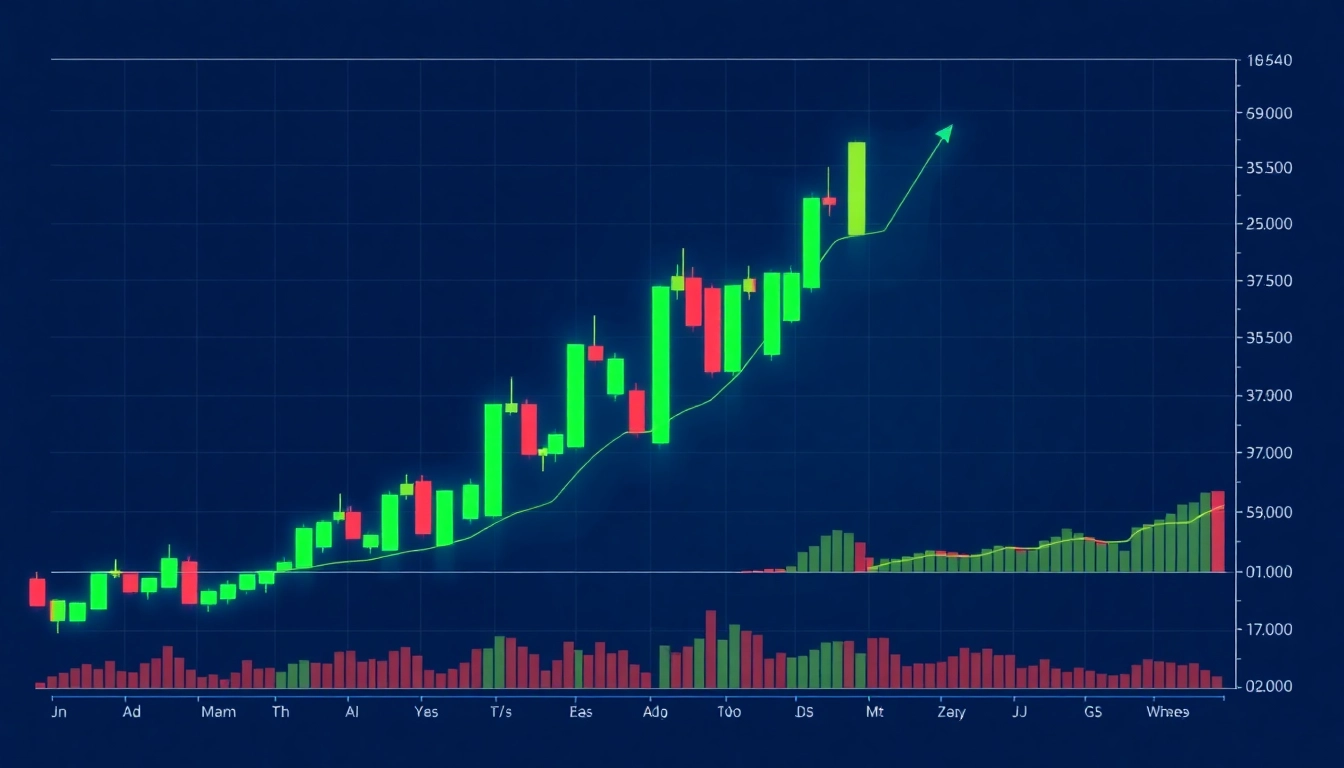Introduction to Trading View and Its Key Features
In today’s fast-paced financial markets, having access to accurate real-time data, sophisticated analytical tools, and robust trading platforms is essential for traders and investors alike. Among the leading platforms that cater to these needs is trading view. Renowned for its comprehensive charting capabilities and community-driven insights, TradingView has become a staple in the toolkit of professional traders and retail investors. Its intuitive interface, combined with powerful analytical tools, enables users to analyze, strategize, and execute trades with confidence and precision.
Understanding the Trading View Interface
The TradingView interface is designed to be user-centric, balancing complexity with accessibility to accommodate both beginners and seasoned traders. At its core, the platform provides a dynamic charting environment that displays multiple asset classes including stocks, cryptocurrencies, forex, commodities, and indices. The layout is customizable, allowing users to organize their workspace with multiple charts, watchlists, and analysis panels.
Navigation is seamless, with easy access to a vast library of technical indicators, drawing tools, and scripting options. The right sidebar typically features asset information, trading ideas, news feeds, and social interactions, fostering a collaborative trading community. The top menu offers quick access to account settings, alerts, and additional integrations, making it a comprehensive hub for market analysis.
Core Tools for Traders and Investors
TradingView is equipped with a suite of core tools that elevate market analysis and trading strategy development. These include:
- Advanced Charting Tools: Candlestick, bar, line, and Heikin Ashi charts with the ability to layer multiple data series.
- Technical Indicators: Over 100 built-in indicators, including Moving Averages, RSI, MACD, Bollinger Bands, and custom scripts.
- Drawing Tools: Trendlines, Fibonacci retracements, channels, and shapes for visual pattern recognition.
- Social Features: Sharing trading ideas, commenting, and engaging with a community of over 60 million users worldwide.
- Real-time Alerts: Customizable notifications based on price movements, indicator crossovers, or pattern formations.
These tools empower users to conduct granular analyses and refine trading strategies with precision and clarity.
Benefits of Real-Time Data and Analytics
One of TradingView’s standout features is its access to real-time data, which is crucial for timely decision-making in volatile markets. The platform aggregates data from numerous exchanges and financial data providers, ensuring that users have the latest market movements at their fingertips.
Real-time analytics facilitate quick identification of emerging trends and potential entry or exit points. Traders can leverage the platform’s insights to anticipate market shifts, manage risk effectively, and optimize their trading performance. Additionally, historical data analysis helps in understanding long-term trends and refining strategies through backtesting.
Setting Up Your Trading View Environment
Creating Custom Watchlists and Alerts
Personalization is key to a productive trading environment. TradingView allows users to create tailored watchlists comprising preferred assets, which can be organized by sectors, markets, or strategies. Alerts can be set for specific price levels, indicator signals, or pattern formations, providing proactive notifications that keep traders alert without constant monitoring.
Using Technical Indicators Effectively
Maximizing the power of technical indicators involves understanding their applications and limitations. Combining multiple indicators—such as trend-following tools with oscillators—can improve signal accuracy. For instance, pairing Moving Averages with RSI can help confirm trend strengths and identify overbought or oversold conditions.
Integrating Trading View with Other Platforms
For seamless trading operations, TradingView can integrate with various brokerage platforms through its Trading Panel feature. This integration streamlines order execution directly from the charts, reducing latency and enhancing trading efficiency. Moreover, API connections with other software facilitate data backup, automated scripting, and advanced analytics.
Developing Advanced Trading Strategies with Trading View
Chart Patterns and Trend Analysis
Recognizing chart patterns such as Head and Shoulders, Double Tops/Bottoms, and Triangles is fundamental in forecasting future price movements. TradingView provides pattern recognition tools and tutorials to assist traders in mastering these techniques. Coupled with trendline analysis, traders can identify sustained movements and reversal points with higher confidence.
Automating Trades with Scripting Tools
TradingView’s Pine Script scripting language enables traders to develop custom indicators, alerts, and automated trading strategies. Automated scripts can execute trades based on predefined conditions, minimizing emotional biases and ensuring consistency. Traders can backtest these scripts against historical data to evaluate strategy robustness before deploying in live markets.
Backtesting Strategies for Performance Insights
Backtesting involves applying trading strategies to historical data to assess their effectiveness. TradingView’s strategy tester allows users to simulate trades, analyze performance metrics such as profit/loss, drawdowns, and win rates, and refine their approaches accordingly. This process is vital for validating strategies before risking real capital.
Optimizing User Experience and Performance
Customizing Layouts for Efficiency
Efficiency in trading workflows is enhanced through customizable layouts. Traders can save workspace setups tailored to specific asset classes or analysis types—such as a dedicated cryptocurrency layout or forex dashboard. Drag-and-drop features facilitate quick reconfiguration, ensuring each trader’s environment aligns with their unique style.
Utilizing Mobile and Desktop Features Seamlessly
TradingView offers applications for desktop, iOS, and Android, ensuring anywhere-anytime access. Synchronization across devices maintains continuity, while mobile-specific features like push notifications ensure traders stay connected to market movements in real-time. Optimizing screen layouts and alerts enhances responsiveness to market events.
Maintaining Data Accuracy and Security
Data security is integral to trustworthy trading platforms. TradingView employs encryption, regular security audits, and access controls to safeguard user information and trade data. Regular software updates and user authentication protocols further reinforce platform integrity.
Measuring Success and Continuous Improvement
Tracking Key Performance Metrics
Successful trading requires continuous assessment. Key metrics such as win/loss ratio, average profit per trade, and maximum drawdown help traders evaluate their strategies’ efficacy. TradingView’s reporting features enable detailed analysis to inform decision-making.
Adapting Strategies Based on Market Analysis
Markets evolve, and so should trading strategies. Regular review of performance metrics, combined with ongoing market analysis, allows traders to refine their approaches. TradingView’s social community offers valuable insights and shared strategies, fostering a culture of continuous learning.
Staying Updated with Trading View Innovations
TradingView frequently introduces new features, indicators, and collaborative tools. Staying updated through official releases, webinars, and community forums ensures traders leverage the latest innovations to maintain their competitive edge.



